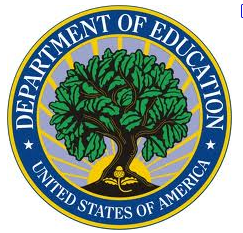A $1.33 million five-year grant from the Department of Education in early September prompted big changes in Student Support Services, director of TCU TRIO Programs, Steven Hodnett said.
The first of which will be a freshman luncheon at noon today, designed to help first-year students develop study skills and strategies for adjusting to university life.
Director Margarita Garza said, Student Support Services is a branch of the TRIO Programs under the College of Education that helps first-generation students, students who are financially disadvantaged or who have a physical or learning disability.
Student Support Services made changes to workshops and activities and planned to increase its involvement around campus beginning in September, Garza said.
Cynthia Montes, an SSS academic adviser, said the new workshops would be more focused and organized by class to provide students with skills and knowledge more relevant to their needs.
Workshops for sophomores, juniors and seniors would help students in areas such as applying to graduate school and professional development, she said.
Montes said the program also increased efforts to work with other departments, like Student Disabilities Services, to reach more students who qualified for the program.
Senior Luis Gonzalez, head student ambassador for SSS, said the workshops he attended made a difference in his time at the university.
“Through SSS I’ve learned study skills. I’ve learned better time management,” Gonzalez said. “All those workshops that I have gone to have helped me better understand what I want to do with my career.”
The program helped him to get a scholarship and to remain at the university, he said.
Gonzalez said the staff really cared about its students and was open to anyone who needed the extra help.
“There is a huge misconception about SSS,” Gonzalez said. “You see a lot of color, but it’s not just if you are a minority or not. It’s if you need help 8212; that’s the main thing.”
Garza said the program took pride in helping qualifying students with whatever they needed academically, financially and personally.
“What I like about our program, and what I think our students enjoy most, is that they have a place where they can call home,” Garza said. “They feel comfortable here [and] they don’t feel weird about asking questions.”
Garza kept a framed group photo, given to her by last year’s seniors, hung on the wall of her office.
The program provided a wide range of resources for students such as a computer lab, private tutoring for any subject and specialized academic advising, she said. Students could also get guidance for their finances by discussing financial aid, loans and budget management.
She said the program’s faculty continued to be involved in students’ lives throughout their time at the university. Students also got the resources they needed and advice on the problems they faced in almost any area of life.
“I think we build relationships with the students where they feel comfortable enough to open up to us and share those things with us,” Garza said. “So I think that’s one of the main things. They have a meeting place and we try to make it as comfortable as possible.”
Montes said with the grant the program hoped to continue improvements, beginning with the new workshops and moving forward.

